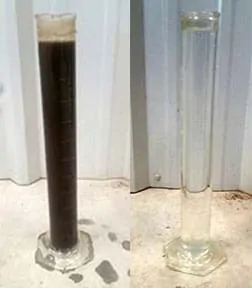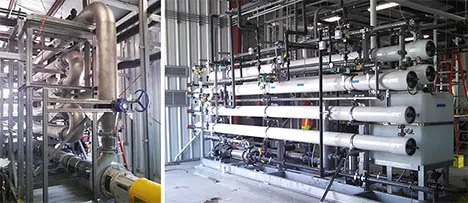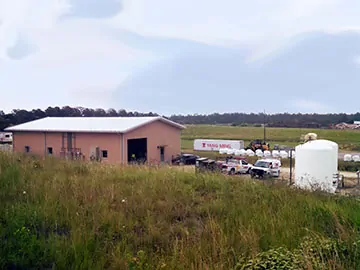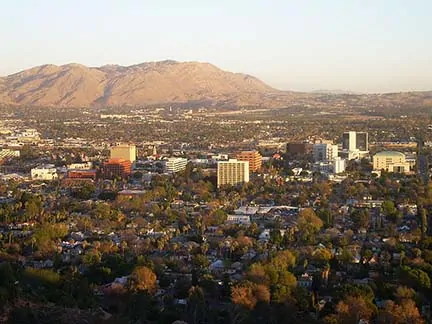

Navigating Industrial Waste and Wastewater Permitting
Industrial waste and wastewater permitting involve obtaining necessary authorizations from federal, state, and local regulatory agencies before handling, treating, storing, or disposing of industrial waste. We all know that permitting ensures compliance with environmental regulations, protects public health, and minimizes potential harm from industrial activities. Nevertheless, federal mandates can change with new administrations, complicating the process and timing.
The timing for industrial waste and wastewater permitting can vary significantly depending on the specific type of permit and the regulatory authorities involved, and it is a significant cost factor. New permits may have a long approval cycle, so we provide advice to help expedite the permitting process in this article.
Stakeholder Involvement Early in the Permitting Process
Communicating the stakeholder goals upfront helps identify and address potential challenges before permitting submissions. Stakeholders include any agency involved in the permitting process, such as federal, state, and local agencies. Even the finest environmental consultant does not try to anticipate every potential issue – we work with facts.
Early communication and coordination prevent delays and provide valuable insights, perspectives, and, in our experience, innovation specific to an industry, facility, process, and locality. Aligning your permitting cycle with the needs and expectations of agency stakeholders builds trust and goodwill, smoothing the process and preventing unnecessary slowdowns to address questions.
Example: Working in Partnership with Miami-Dade County
For example, industrial facilities in Miami-Dade County must navigate a comprehensive permitting process to protect public health and the environment. For this article, we base our advice on permitting for a pet food manufacturer, an aircraft maintenance facility, and a water bottling facility – all very different but following a similar strategy. The Industrial Wastewater Facility (IW5) and the Industrial Waste Pretreatment (IW-P) Permits are among the most common and critical permits. While each serves a distinct regulatory purpose, both are essential for facilities that generate or manage industrial waste.
Facilities impacted include dry cleaners, automotive service providers, manufacturers, printers, and film processors. Understanding which permit applies and how to comply can significantly reduce project delays and keep operations on schedule.
Understanding the IW5 and IWP Permits
The IWP Permit regulates facilities that discharge significant volumes of industrial wastewater to the public sanitary sewer system. These discharges are subject to local and federal pretreatment regulations.
The IW5 Permit, the focus of this article, applies to facilities that store or use hazardous materials in smaller quantities and discharge relatively low volumes of wastewater. The permit outlines conditions that facilities must meet to minimize the volume and impact of their discharges on the County’s Publicly Owned Treatment Works (POTW).
Steps in the IW5 Permitting Process
The Miami-Dade Department of Regulatory and Economic Resources (RER), Division of Environmental Resources Management (DERM) administers the permitting process. Facilities submit required documentation through the County’s Electronic Permitting System (EPS). The process typically involves the following phases:
Before submitting an IW5 permit application, facilities must prepare and upload the following documents:
Once the CU and Occupational License are secured:
Finding the Right Environmental Consultant
The IW5 and IW-P permitting process can be complex, but partnering with an experienced environmental consultant can streamline your path to compliance. Look for a partner who supports industrial clients —from aircraft maintenance and cleanrooms to chemical R&D and clinical pharmacology—through every stage of the permitting process.
Seek a partner who will assist you with early documentation, regulatory coordination, and ongoing compliance to help ensure timely approvals and avoid costly delays. An environmental consultant with in-house experts, including legal and construction, will bring more value to your permitting project.

Join SCSers John Tabella, PG, and Kerim Temel, PE, in attending the VWEA 2025 Industrial Waste & Pretreatment Conference on March 3-4 in Harrisonburg, Virginia. Hosted by the Virginia Water Environment Association, this event discusses the latest in Industrial Waste in the Commonwealth. With the theme, “Back to the Source”, the program boasts workshops and seminars that explore topics such as Brewery Wastewater, PFAS Regulatory Updates, A Sewer Lawyer’s Perspective on Pretreatment Basics, and more. Register now!
SCS Engineers met a tight, non-negotiable regulatory deadline to get the new plant on-line while meeting non-toxic effluent standards.

Everyone enjoys before and after pictures; just look at the results New Hanover County’s program is producing. This and other County programs are helping this North Carolina county reduce reliance on landfill disposal while creating a comprehensive and sustainable solid waste management system that is protective of the environment.
In 2016 a new wastewater treatment plant was commissioned at the New Hanover County Landfill. The new facility processes approximately 65,000 gallons per day (GPD) of leachate using state-of-the-art ultrafiltration (UF) and reverse osmosis (RO) technologies to meet or exceed federal and state treatment standards.
The raw leachate is pre-treated in an existing aerobic lagoon followed by a sequencing batch reactor (SBR) to reduce organic constituents. The pretreated effluent then flows into the membrane system. Using state-of-the-art membrane filtration technology, including ultrafiltration (UF) pictured at lower left, and a reverse osmosis (RO) system, pictured lower right, to produce crystal clear, effluent discharged to an upper tributary of the Cape Fear River.

The new facility can process 75,000 GPD and the Wastewater treated through the new system meets state Drinking Water standards for quality.
Tough surface water discharge standards and predictable performance in cold weather drove the design to use UF/RO systems. The results are impressive; metals including arsenic are BDL, ammonia <0.2 ppm, and TSS < 2 ppm. The system produces approximately 13,000 GPD of RO concentrate that is pumped to the working face and safely disposed of in the landfill. The County has certified operators that have played a big role in getting the plant shaken down and running smoothly.

“New Hanover County is an industry leader in adopting proven technologies to better manage solid waste, and protect the environment. This kind of planning and approach can benefit many other public works departments,” stated Bruce Clark, PE, BCES, LEED AP®, and SCS Engineers National Expert on Waste Conversion.
As Joe Suleyman, the County’s Environmental Management Director put it, “Let’s face it – people move to New Hanover County because they love to be in, on, or near the water. Our technical staff is composed of very talented folks who have environmental science and biology backgrounds. They believe in what they’re doing to help protect our delicate coastal environment, and this state-of-the-art system is a huge stride towards meeting our own expectations and those of the citizens we serve.”
See more case studies, services, and professionals on the SCS Engineers – Liquids Management Website
SCS Engineers was selected to provide on-call services for capital improvement projects at the Riverside Regional Water Quality Control Plant (RWQCP) and the Tequesquite Landfill for the City of Riverside Public Works Department.

SCS Engineers provides wastewater planning, compliance, and engineering services for capital improvement projects at the Riverside Regional Water Quality Control Plant and the Tequesquite Landfill for the City of Riverside Public Works Department.
Over the next three years, SCS will provide wastewater planning and engineering services; geotechnical and materials testing; specialty inspection, including concrete, structural steel, electrical, welding, instrumentation, high voltage inspection services, and other optional construction inspections; PLC programming services; landfill studies, remediation and monitoring; air quality testing and compliance services; as well as regulatory and environmental compliance services.
“SCS Engineers is excited to be a part of the RWQCP plant expansion that will ensure the City of Riverside complies with current state and federal regulations,” said Pat Sullivan, Sr. Vice President with SCS Engineers. “We look forward to assisting RWQCP and the Tequesquite Landfill meet the growing needs of their community.”